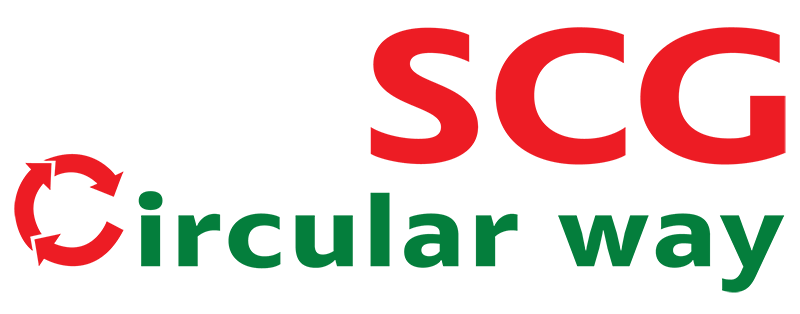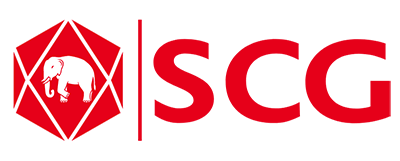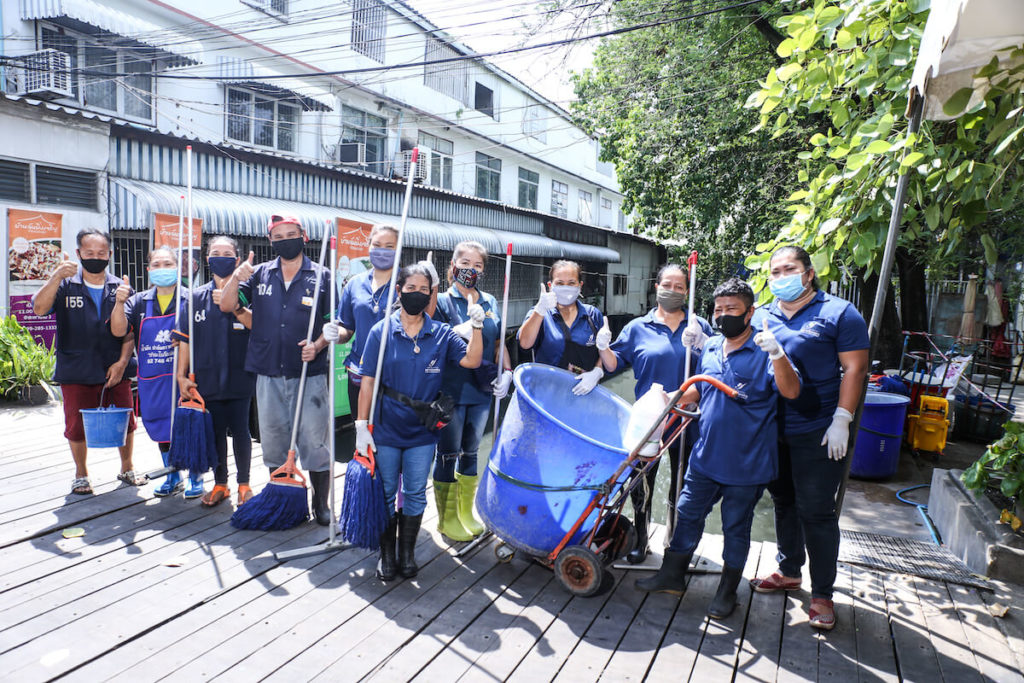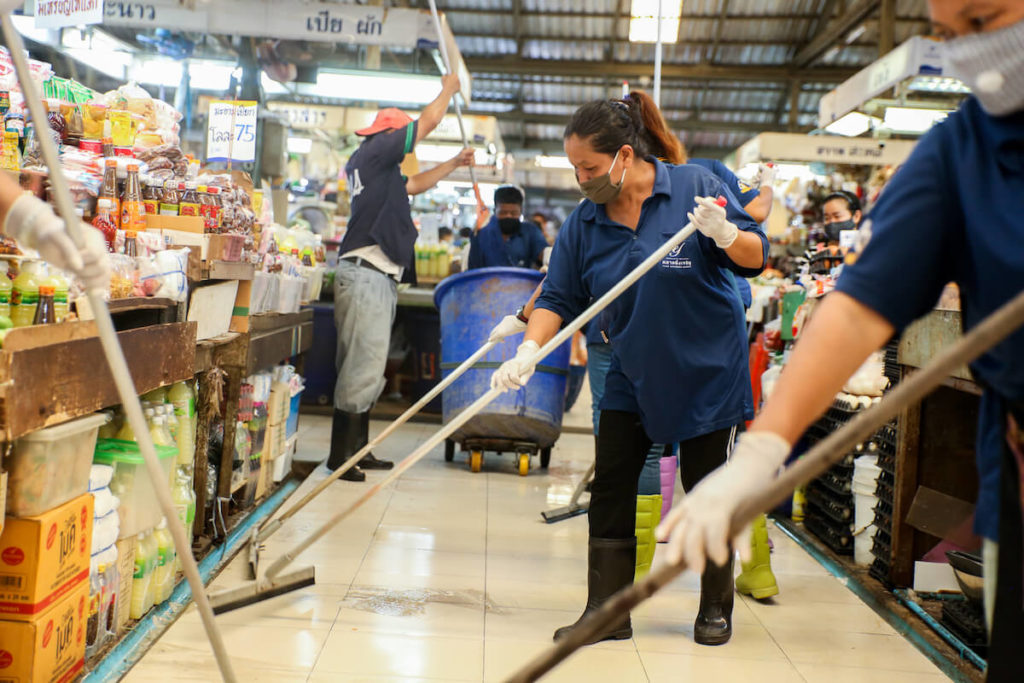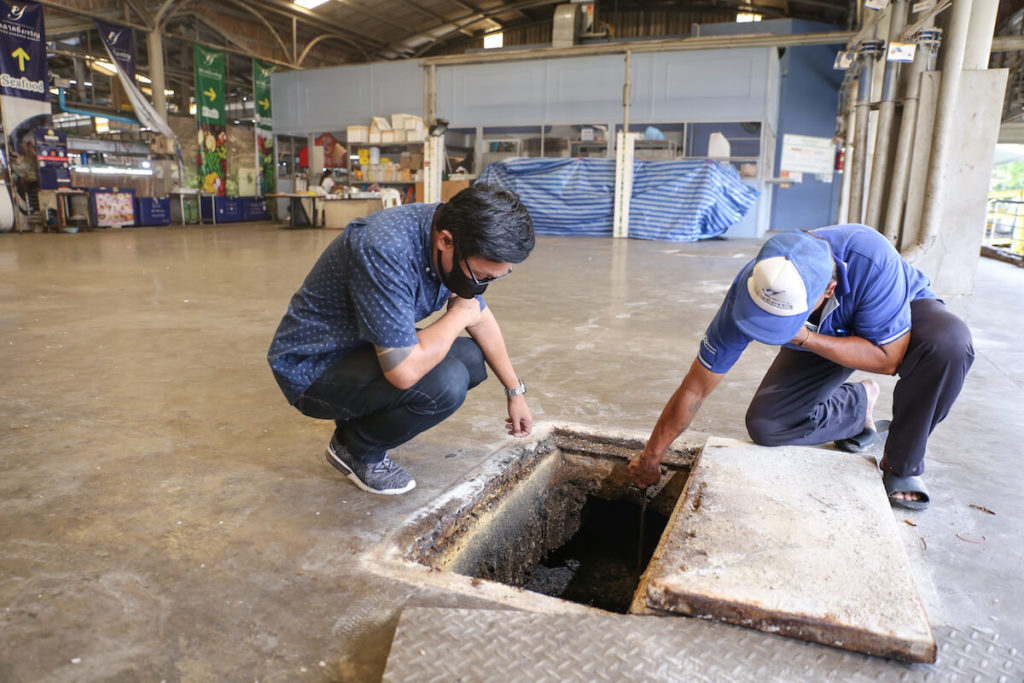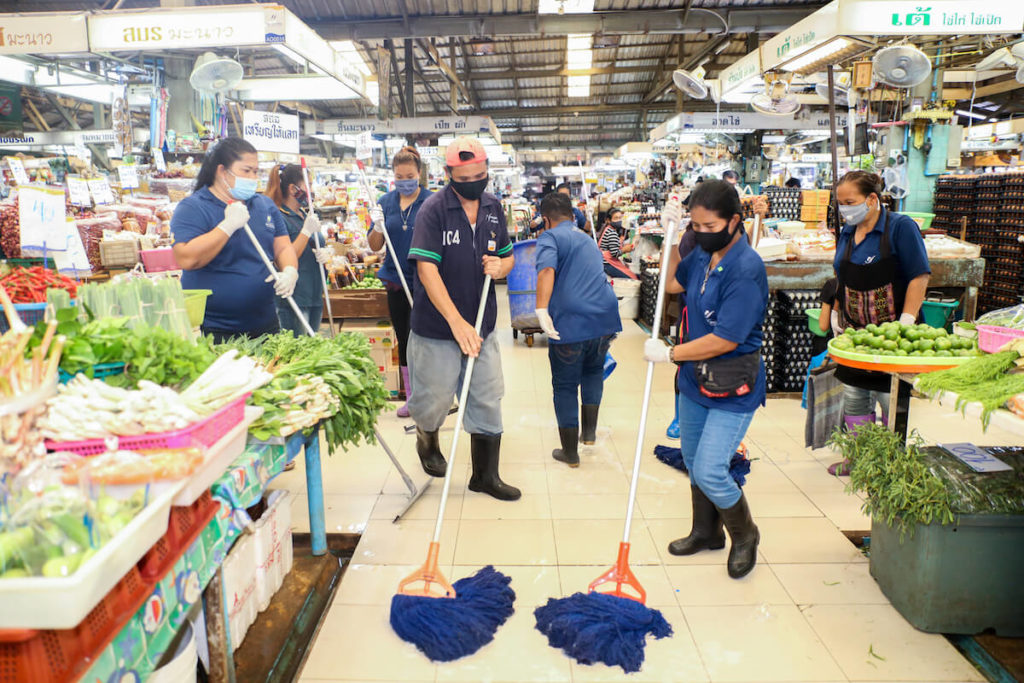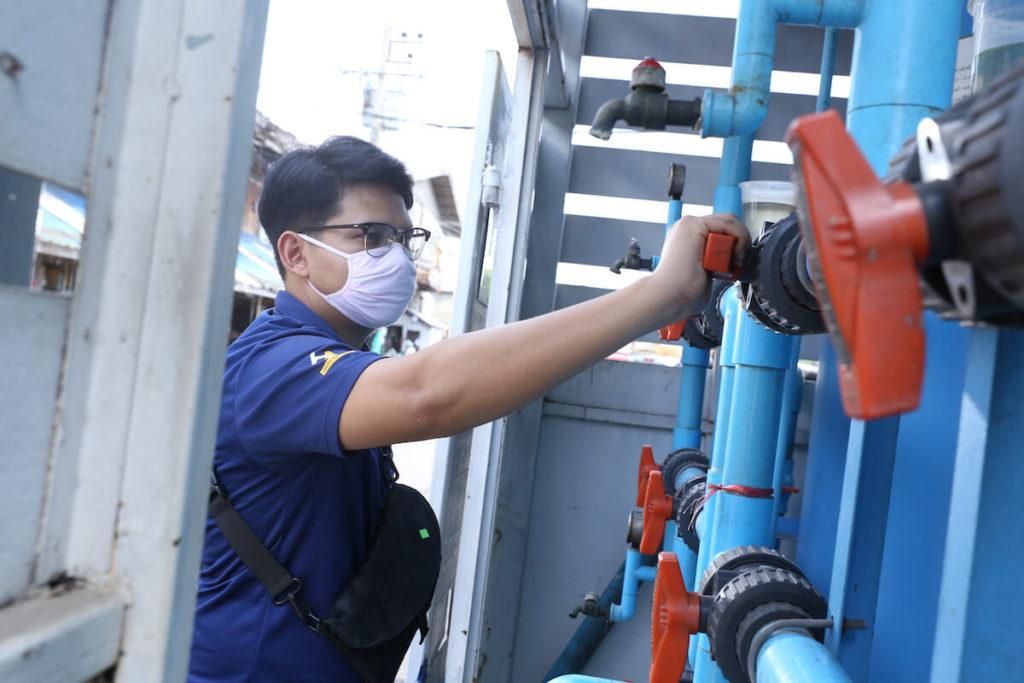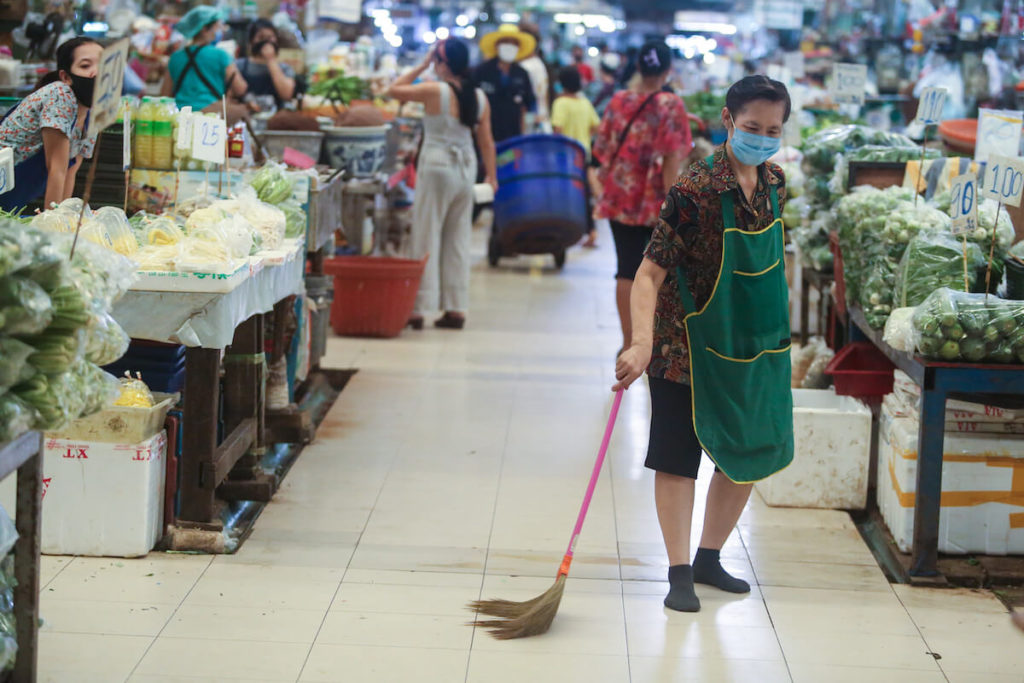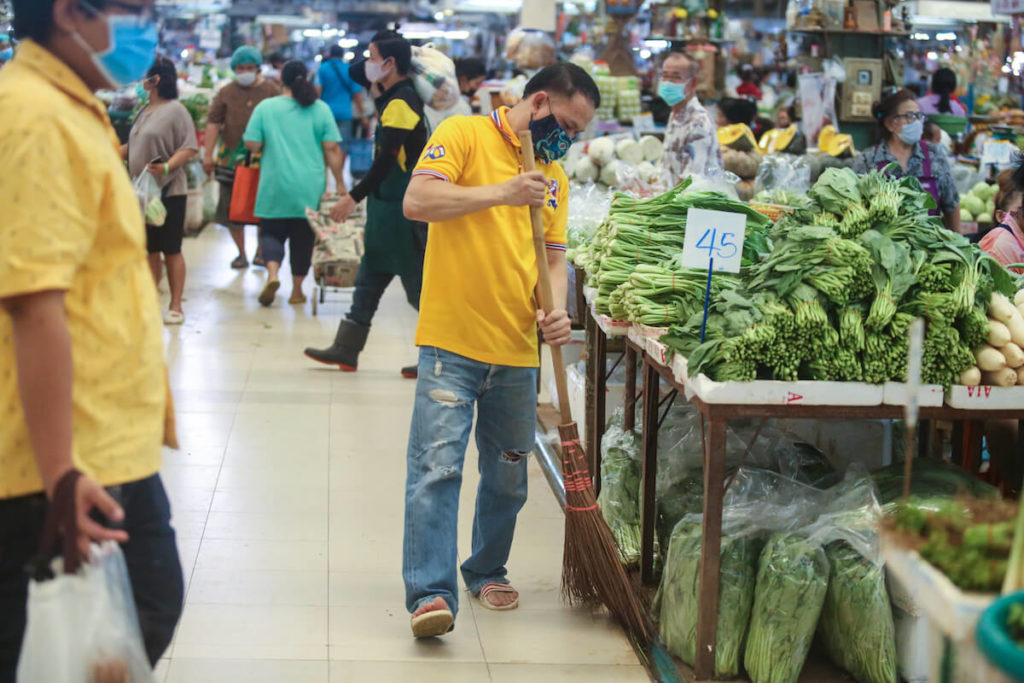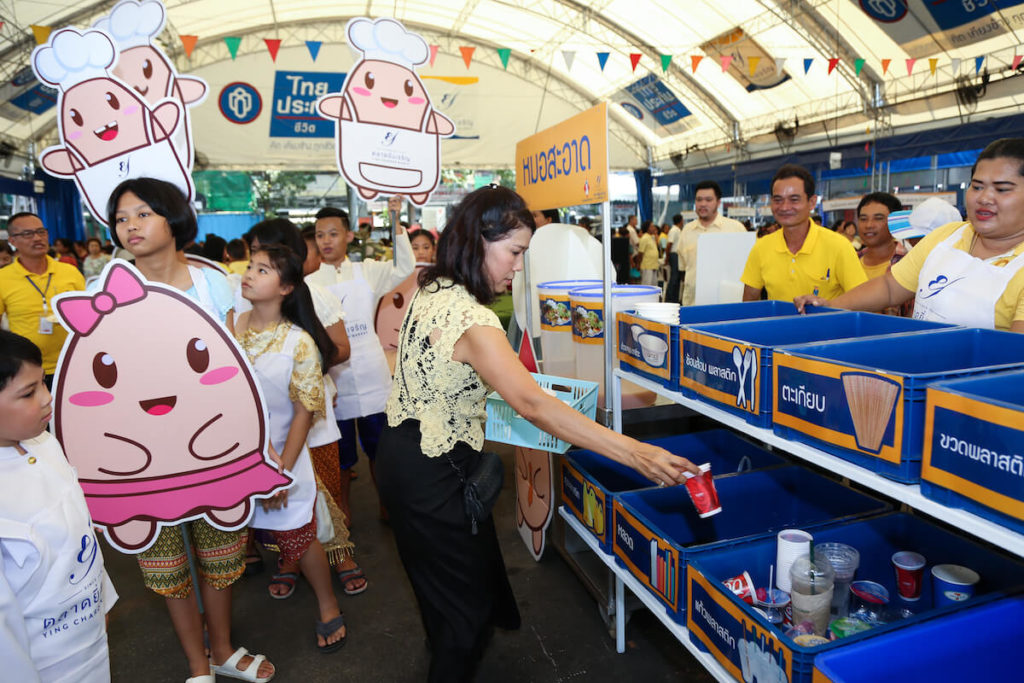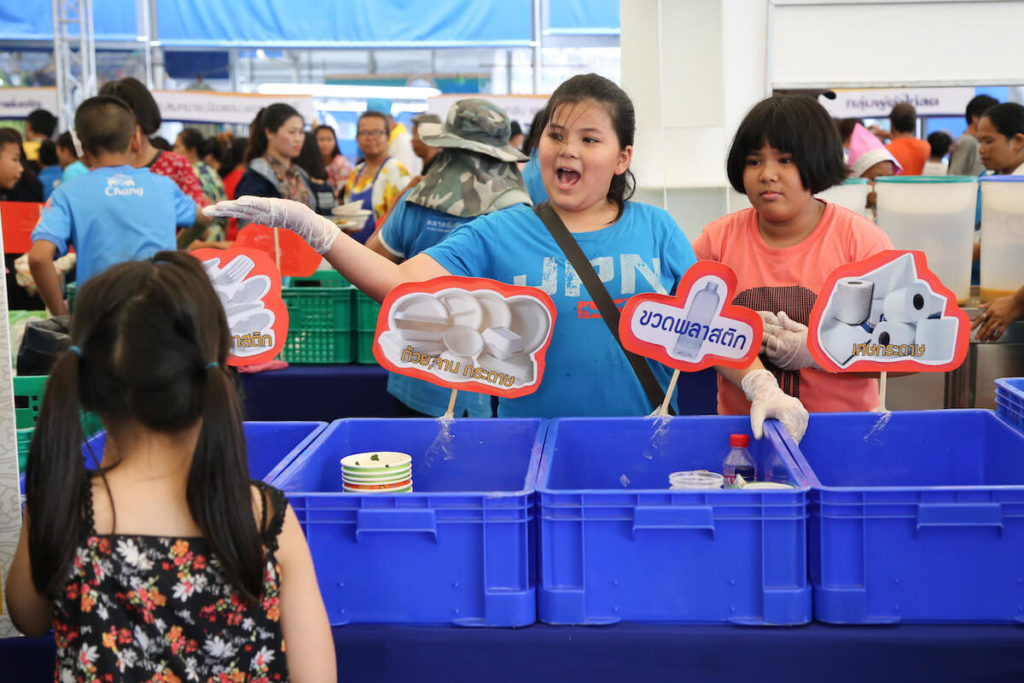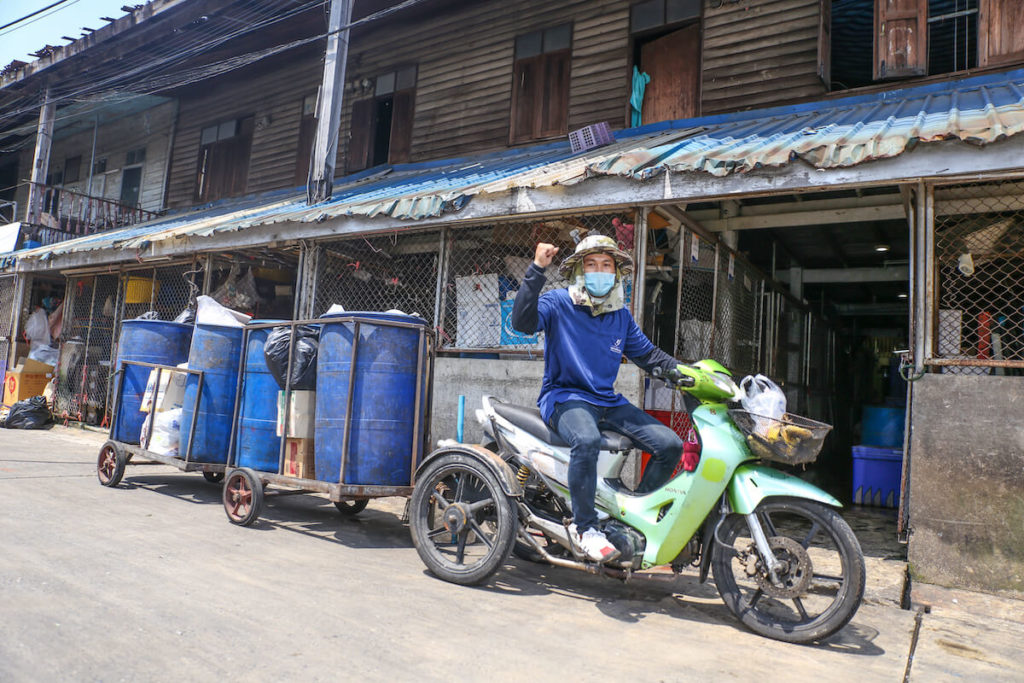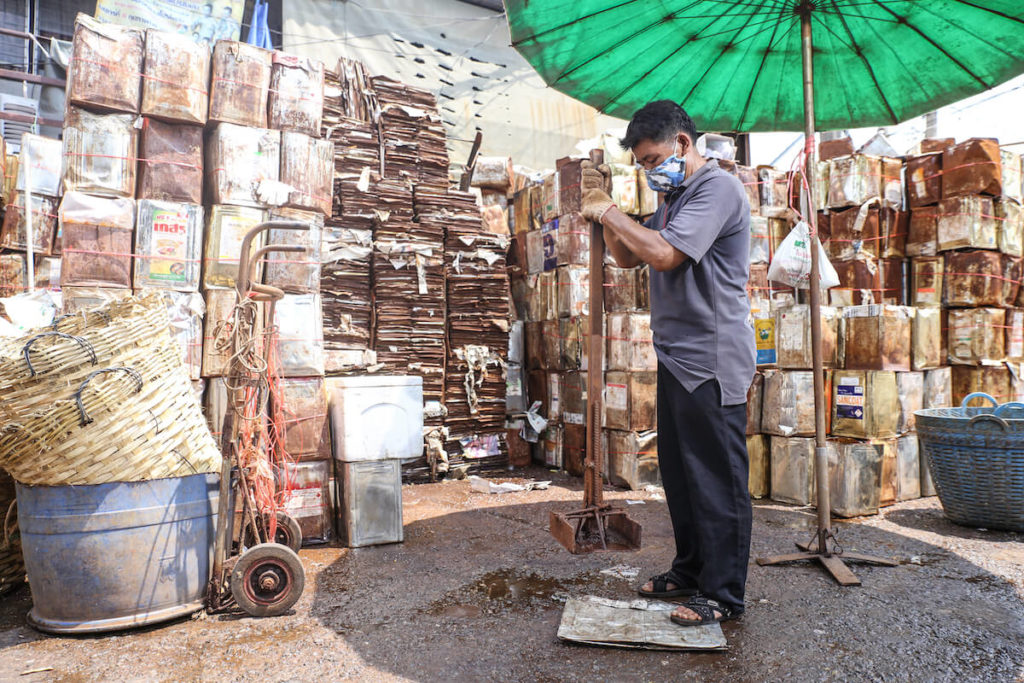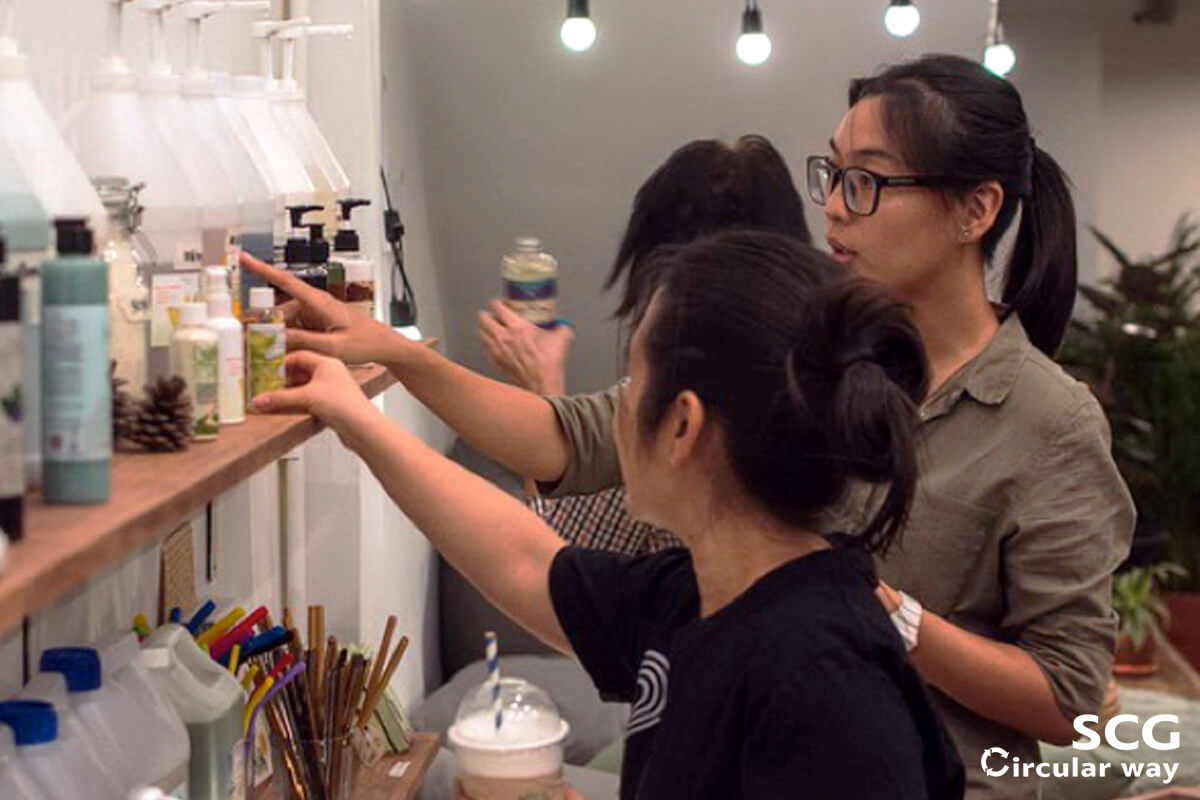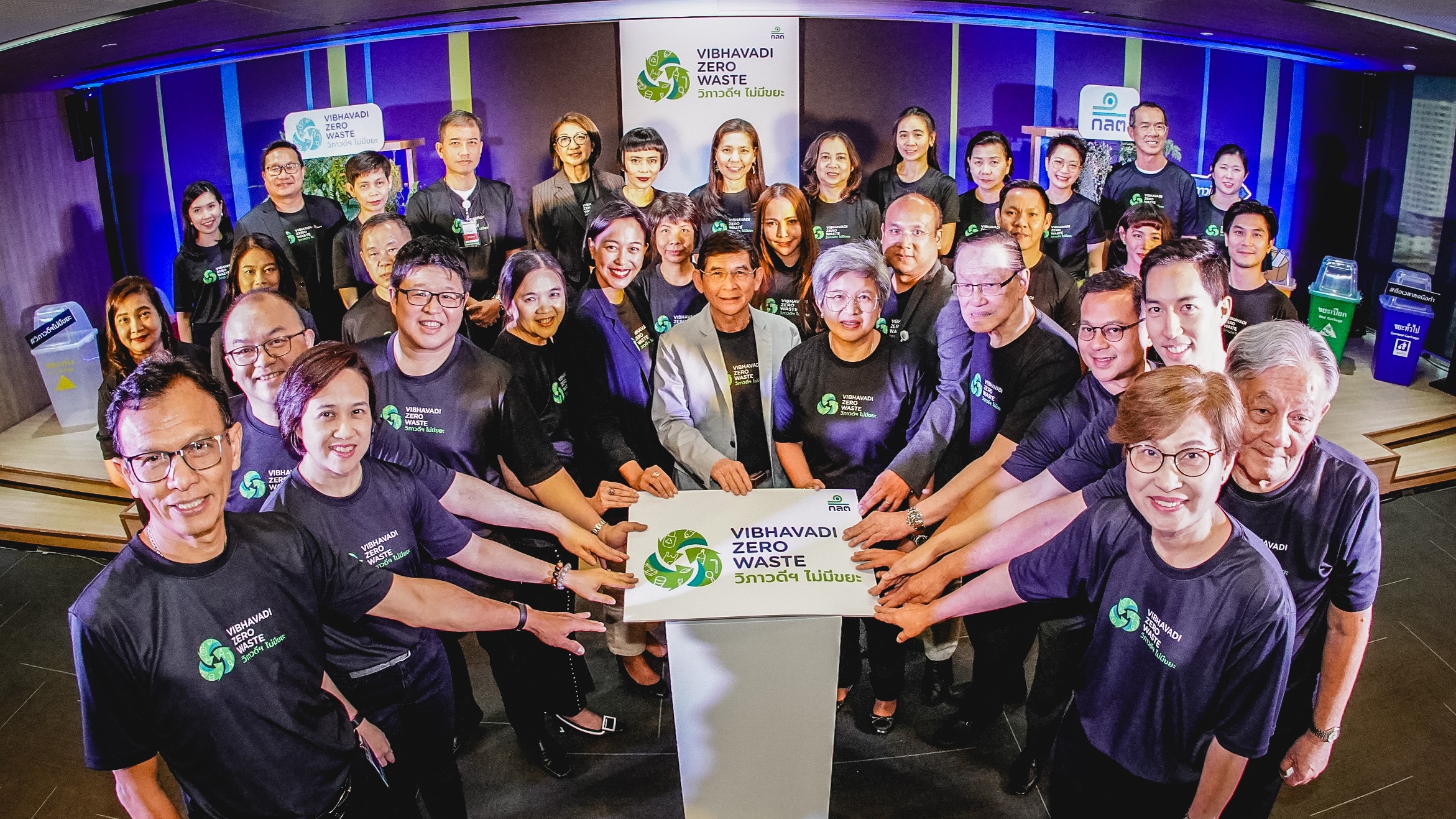Y-Together
Yingcharoen Market has developed and evolved over time, and one of the major overhauls of Yingcharoen Market took place in 2015 under the new management team and management structure. At that moment, no one knew the outcome the change might bring. The market team has introduced new plans and policies under the concept “Y-Together” or simply as “Yingcharoen Together.”
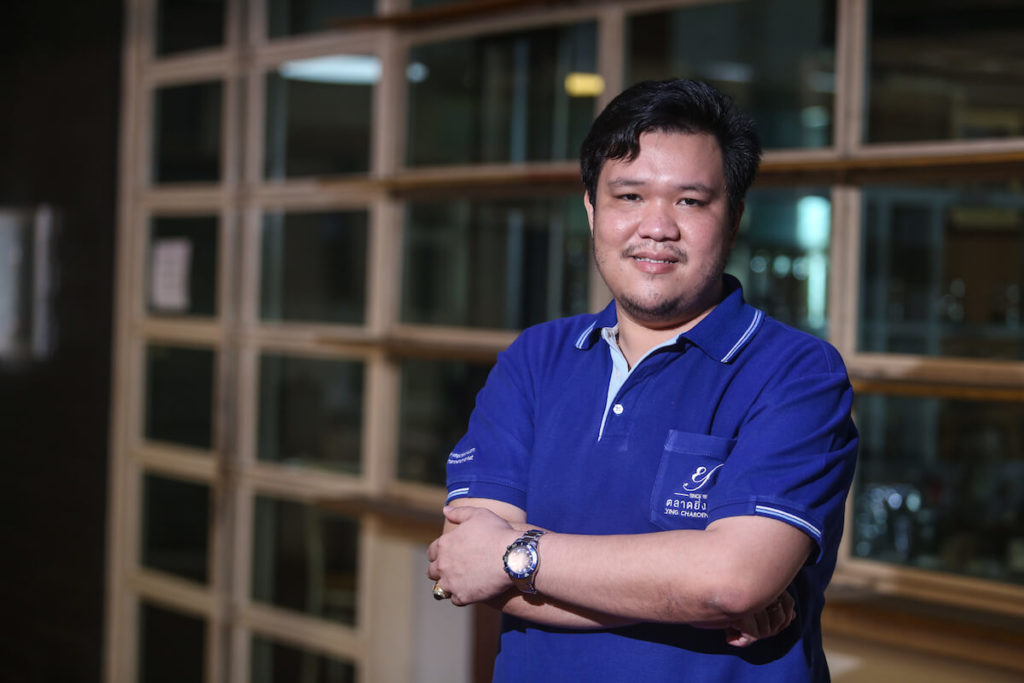
Mr. Saichol Sawaddichai, Senior Manager of Yingcharoen Market, noted that to move the market forward sustainably, everyone in the market and the communities surrounding the market, must work together. All policies are built upon collaboration, sharing, harmony, and brainstorming, not top-down command-style management where people’s voices are not heard.
“We have discussed and come up with the policies and roadmap for the market in the next 5-10 years. The environmental issue is among the prioritized policies. One of the first improvements we introduced was the wastewater treatment system. We launched a campaign replacing the use of chemicals with microorganisms.“
“Once we adopt biological wastewater treatment, the water quality has become standardized, the grease deposits in septic tanks are all removed. As microorganisms have properties to remove grease, it eliminates a source of pests such as flies, cockroaches, etc. Our market is now free of these pests.”
Although the problems about wastewater and flies in the market are settled, other issues are still left unresolved. Among those challenging issues is waste management. It is undeniable that the market is a place to facilitate trade and also a place of waste generation. Yingcharoen Market has to deal with the waste of up to 10,000-20,000 kilograms or 10-20 tons per day, of which about 30% of them are solid waste from communities along the canal. The market successfully manages to slash 50% of 10,000-20,000 kilograms per day.
“Before the waste separation practice in place, we generally divided waste into two types: organic ones like vegetables and fruits which make up 70% of total waste, and general wastes like plastic bags, glass bottles, and cans which make up 30%.” Mr. Sompong Chandee, Manager of the Cleaning Department of Yingcharoen Market, talked about the previous market’s waste treatment practices.
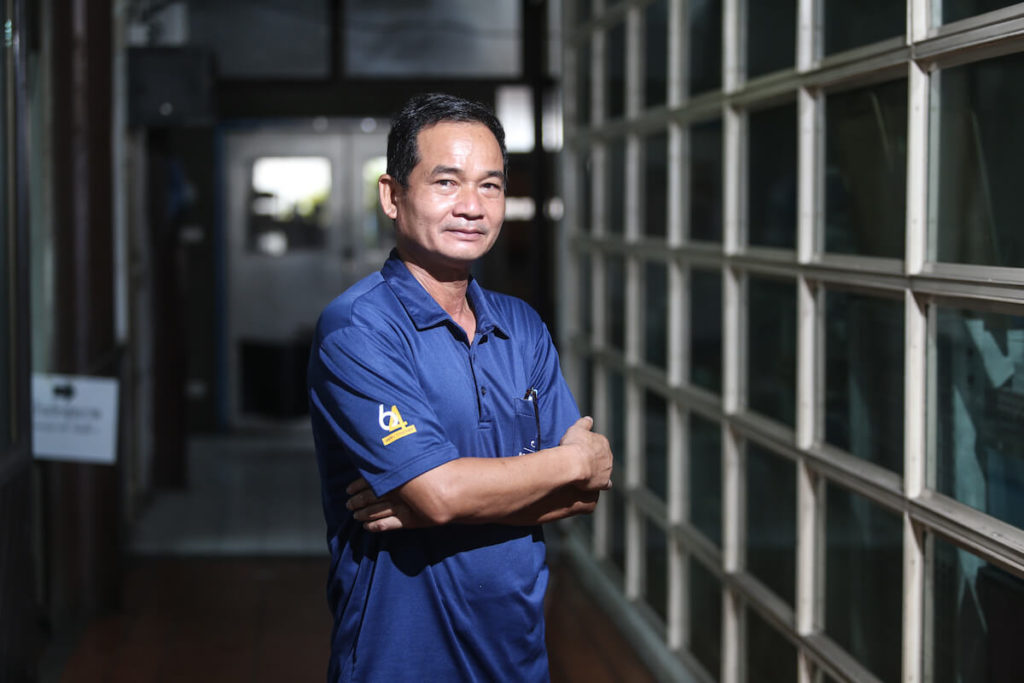
Mr. Sompong began with managing an overwhelming amount of organic waste by discussing with Bang Khen district officials to help take and convert the garbage into organic fertilizers. For general waste, the market involved people living in communities nearby to participate in waste management efforts. The incomes earned from the waste management practices are entirely given to those who join the efforts.
Not only it can create a career for people in communities, Sompong said, but the efforts also have helped educate people as the team imparting knowledge about waste separation and recycling to community members, resulting in more effective waste separation and management at Yingcharoen market since the practices are conducted with the knowledge and intention to improve the quality of life of people in the community.
From the waste amount of 10,000-20,000 kilograms, people in communities near Yingcharoen Market come together to launch thorough waste management, where only 50% of the total waste is left for BMA’s collection.
“For the food waste like fish scraps, we sell them to the factory to process it into animal feed. The plastic bags are washed and sold to recyclers, similar to glass bottles, plastic bottles. Iron and metal items are sold to companies that can recycle the materials via the melting process. Put simply, each waste item has its own path.”
